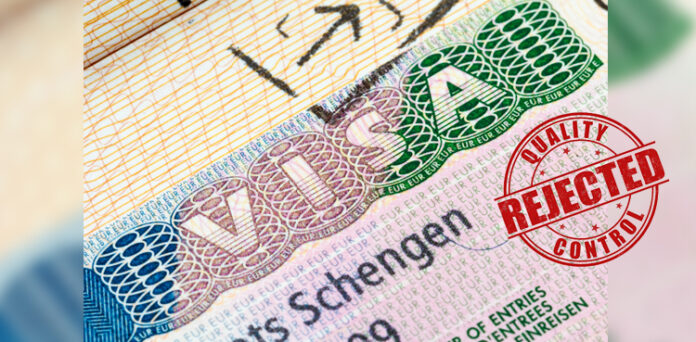If you have recent plans to travel to Europe, getting a Schengen visa is a critical step. However, according to the recent data from the European Commission, some countries have meaningfully high Schengen visa rejection rates, making it tough for applicants to get approval.
In 2024, over 11.7 million visa applications were sent to Schengen countries, and 14.8% of them were rejected.
If you want to increase your chances of getting a Schengen visa, you are advised not to apply to countries having the highest rejection rates.
List of countries with the highest Schengen Visa rejection rates
| Country | Rejection Rates | Applications | Rejected |
| Malta | 38.5% | 4,5578 | 16,905 |
| Estonia | 27.2% | 12,125 | 3,291 |
| Belgium | 24.6% | 255,564 | 61,724 |
| Slovenia | 24.5% | 18,171 | 4,417 |
| Sweden | 24.0% | 188,623 | 44,576 |
| Denmark | 23.7% | 132,158 | 31,013 |
| Croatia | 19.3% | 42,165 | 8,003 |
| Poland | 17.2% | 111,538 | 19,277 |
| France | 15.8% | 3,072,728 | 481,139 |
| Czech Republic | 15.8% | 150,629 | 23,735 |
Moreover, Germany has reverted to its remonstration procedure, highlighting that applicants can no longer appeal or apply whose visas that have been rejected. Due to this, many travellers are exploring other tourist destinations outside the Schengen region.
Additional information
India had a 15% rejection rate, as 165,000 applications were rejected, causing a financial loss of ₹1.36 billion due to non-refundable visa fees.
Nigeria faced a 45.9% rejection rate, expressing it as one of the most affected African countries.
Germany sent 1.5 million applications, out of which 206,733 got rejected, resulting in a 13.7% rejection rate.
Read More: Visa-Free countries for Pakistani travelers in 2025
Pakistani citizens who are planning international travel and are in search of destinations that do not require visa have several visa-free countries offering access to Pakistani citizens holding Pakistani passports to enter.
Pakistani travelers have an option to visit 32+ countries who do not require visa to enter their territory without requiring a visa, according to global residency and citizenship data.



